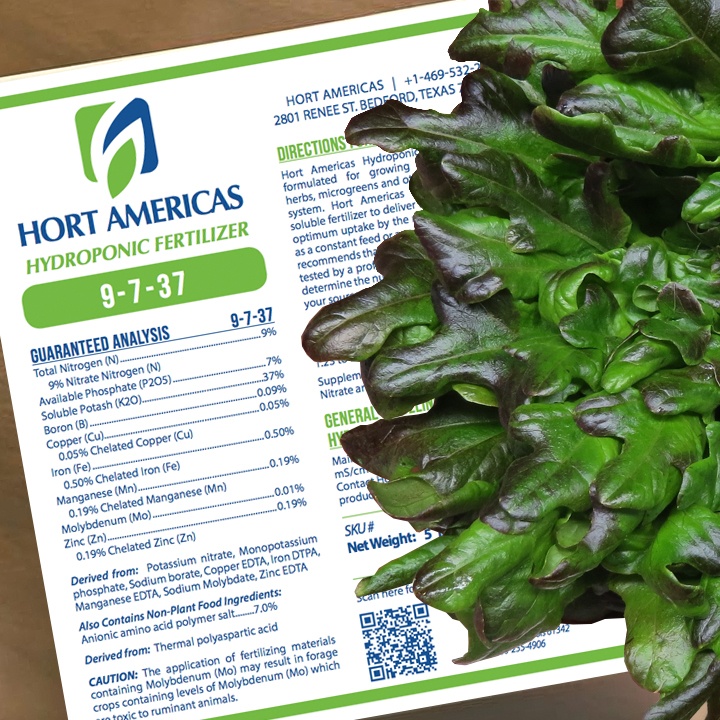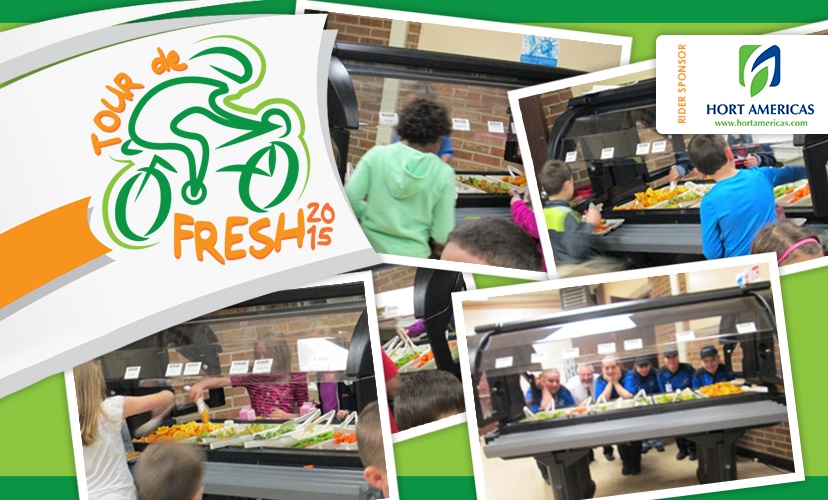
Hort Americas Hydroponic Fertilizer
It is quite common for both start-up and experienced commercial hydroponic growers to feel they need a math degree when it comes to calculating the necessary micro and macro elements of their water soluble fertilizer. Hort Americas has solved the equation with their specially formulated 9-7-37 Hydroponic Fertilizer. Hort Americas has developed this unique fertilizer in cooperation with CEA hydroponic specialists, academicians and researchers to meet the nutritional needs of crops produced by hydroponic leafy green growers.
- Designed for leafy greens, culinary herbs, micro greens and other crops grown hydroponically
- Can be used as a constant feed or as a supplement
- Delivers essential nutrients for efficient uptake by the root system
- Unique TPA (Thermal Poly Aspartic Acid) additive which enhances the plants ability to uptake phosphorus
- To assist the grower even further, Hort Americas has developed a helpful hydroponic fertilizer calculator within part 3 of a 3-part instruction video series found on the Hort Americas website

Hort Americas recommends the grower have their source water tested by a professional water analysis laboratory to determine the macro and micro nutrient levels, pH, EC and total alkalinity before assessing appropriate rates for their fertilizers.
Hort Americas is an innovative leader in North America’s controlled environment agriculture industry (CEA) and strives to continually innovate in agriculture via premium technical support, professional salesmanship, unmatched customer service and outstanding products to our customers in the United States, Canada, Mexico and the Caribbean.
For questions, support or to purchase → Click Here!















You must be logged in to post a comment.